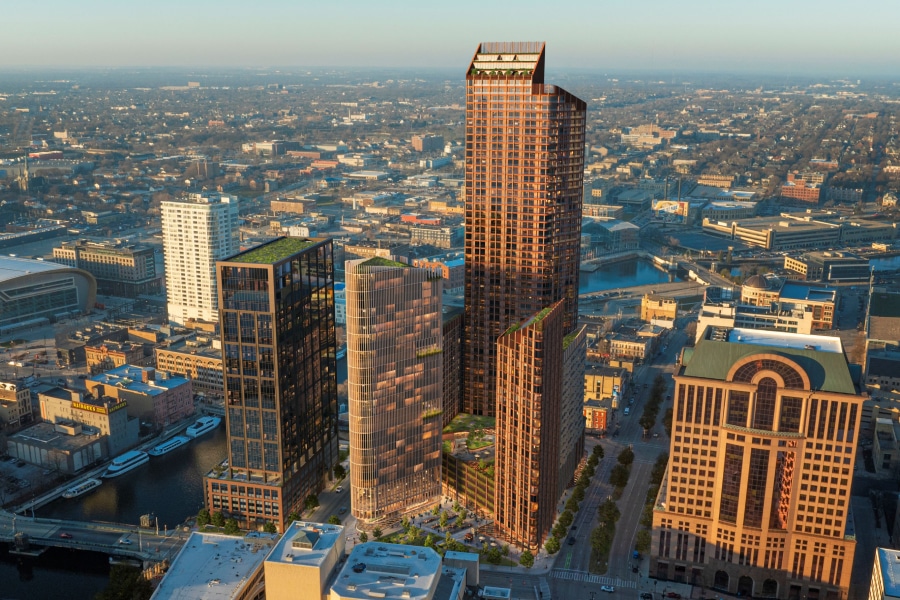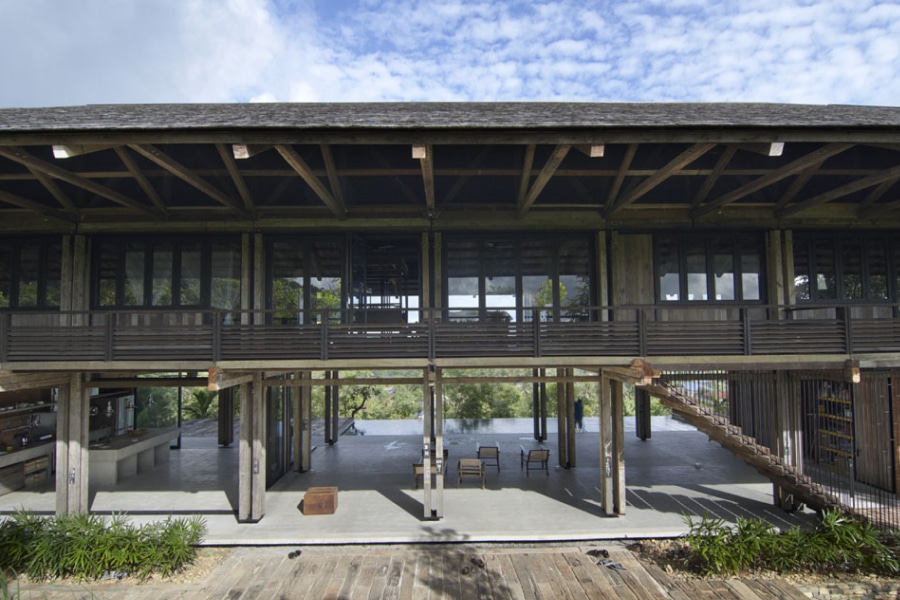Most consider a lumber yard as a pretty standard issue operation, one that operates similarly regardless of location. Whether you’re in Des Moines, Iowa, or New York City, most local makers draw on a standard array of lumber trees that are grown, processed and sold in similar ways.
But in Los Angeles, there’s a lumber yard that’s doing things differently. Angel City Lumber specializes in some seriously unusual wood—it sources everything it sells from fallen neighborhood trees. We spoke to Angel City founder Jeff Perry about the inspiration behind this unusual business, his love for lumber and his hopes for making wood sourcing a local art.
Inspiration strikes
Starting out his career as a carpenter and maker, Perry found the inspiration for the project that would become Angel City while out exploring nature with his young son. “I was walking in a park in Altadena, and I saw an enormous old coast live oak trunk had fallen in a storm.”
Perry admired the wood and wondered what would happen to it. Would it be put to a good use? “I went to the park ranger and I asked him if I could take the tree, and he was like, ‘No, man, you can’t take a tree from the park, so that doesn’t work that way.’ He explained the process to me, how they left the part of the tree that was in the brush so that it could decompose, and then the part that fell into the pathway would be mulched. I was like, man, I just paid $11 a board foot for oak from Illinois at my local lumber yard, and now here is this oak and we’re just mulching it!”
Perry started going “down the rabbit hole” on his search for what happened to all of L.A.’s fallen lumber, a quest that eventually took him to recycling coordinator Craig Hambel, who showed him “a football field of tree logs” that were going to be mulched.
Seeing all the waste gave Perry the inspiration he needed to launch his business. He found local tree companies that were willing to let him carry away logs from the trees they took down, and talked to designers to gauge their interest in using local lumber in their work. With both supply and demand in place, Perry’s business was born.
Community and collaboration
As a former carpenter and woodworker, Perry is passionate about working closely with makers of all kinds to find new and exciting uses for the lumber Angel City sources, working in a variety of capacities.
“We consult, we project manage, we install, we kind of do whatever,” he said. “We want to be a support team.” Angel City will help designers figure out what kind of local lumber works best for any given project, and it collaborates with creators to determine the best use cases for every type of tree.

One of the most interesting types of projects Angel City does are called “lifecycle projects,” where a fallen tree from a given location is transformed into something beautiful and usable within the existing space. Perry was excited to share a lifecycle project he had done in collaboration with the Eames Foundation, using eucalyptus trees from the Eames House, which had reached the end of their lifecycles and had to be removed.
The Angel City team worked with the foundation to mill the trees into usable wood, which were then transformed into furniture and skateboards using original Eames designs.
“There’s a little grove of 150-year-old eucalyptus at the Eames house,” Perry said, “and every couple years an arborist will come in [and] identify some that are failing, so they’re kind of coming down at a regular clip. There’s a bunch of projects where we’re utilizing the wood. Charles Eames had a really famous stool design, so we’re making stools from the trees now.”
Creating a closed loop where trees are used near their place of origin, the Eames project embodies many of Angel City’s values when it comes to transforming the global lumber supply into something more intimate and bespoke.
A hyper local approach
Lumber is grown and shipped all over in a complex network of materials that crosses the globe. But Angel City is interested in doing things the old-fashioned way. An essential part of Perry’s vision for Angel City is keeping lumber local, the way it used to be before the days of hyper globalization.
“We want to make it really local,” he said. “So basically our thing is we only do L.A. County trees. We don’t source trees from outside L.A. County, and we won’t sell trees to anyone outside of L.A. County. No one thinks of L.A. and trees, but there’s literally millions of trees in L.A. County, and we’re just tossing them. I think finding a new use for these trees is the future. If every local hub area took pride in its local materials, that would be transformative.”
ALSO ON BUILT:
Part of working within a limited area is finding creative ways to use unconventional trees. “One of the services we offer to design firms is consultation,” he said. “Because a lot of these designers who know wood backwards and forwards, they come to us and they’re like, what the hell is that wood?”
Perry believes that all wood has a potential use case, one he’s deeply committed to investigating. “We don’t turn trees away,” he said. “We’ve tried to find use cases for every single application, for every single species, and we’ve been really successful.”
One of the most famous Angel City success stories is eucalyptus wood. Originally planted throughout the state in the 1800s as a quick-growing lumber source, it was abandoned as unusable when conventionally treated eucalyptus splintered and warped. Through trial and error, and the use of older trees whose wood is more stable, Perry found a process that makes eucalyptus usable. “We’ve done huge jobs with eucalyptus,” he said. “We’re just trying to change the perception.”











